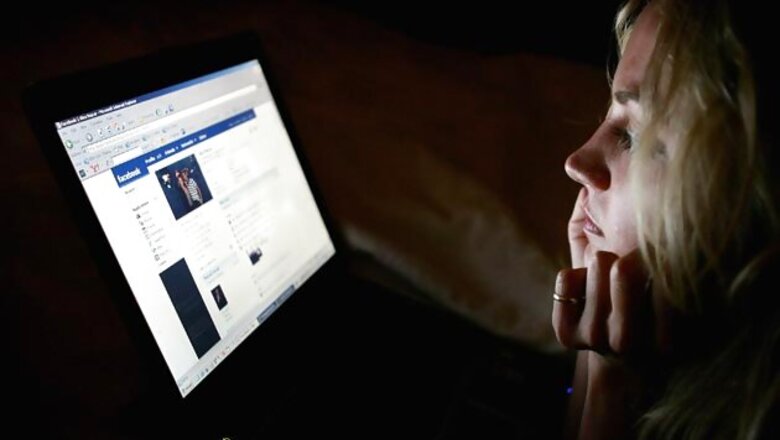
views
Washington: A person's Facebook profile may reveal signs of mental illness that might not necessarily emerge in a session with a psychiatrist, a new study suggests.
According to researchers from the University of Missouri, the social media activity when used as a tool in psychological diagnosis can remove some of the problems associated with patients' self-reporting.
"For example, questionnaires often depend on a person's memory, which may or may not be accurate. By asking patients to share their Facebook activity, we were able to see how they expressed themselves naturally," said study researcher Elizabeth Martin.
"Even the parts of their Facebook activities that they chose to conceal exposed information about their psychological state," said Martin.
Social media profiles could eventually be used as tools for psychologists and therapists, according to Martin, doctoral student in MU's psychological science department in the College of Arts and Science.
"Therapists could possibly use social media activity to create a more complete clinical picture of a patient," Martin said in a statement.
Martin's team asked participants to print their Facebook activity and correlated aspects of that activity with the degree to which those individuals exhibited schizotypy, a range of symptoms including social withdrawal to odd beliefs.
Some study participants showed signs of the schizotypy condition known as social anhedonia, or the inability to experience pleasure from usually enjoyable activities, such as communicating and interacting with others.
People with social anhedonia tended to have fewer friends on Facebook, communicated with friends less frequently and shared fewer photos.
Other study participants concealed significant portions of their Facebook profile before presenting them to researchers.
These participants also showed schizotypy symptoms, known as perceptual aberrations, which are anomalous experiences of one's senses, and magical ideation, which is the belief that events with no physical cause-and-effect are somehow causally connected. Hiding Facebook activity also was considered a sign of higher levels of paranoia.
The study was published in the journal Psychiatry Research.



















Comments
0 comment